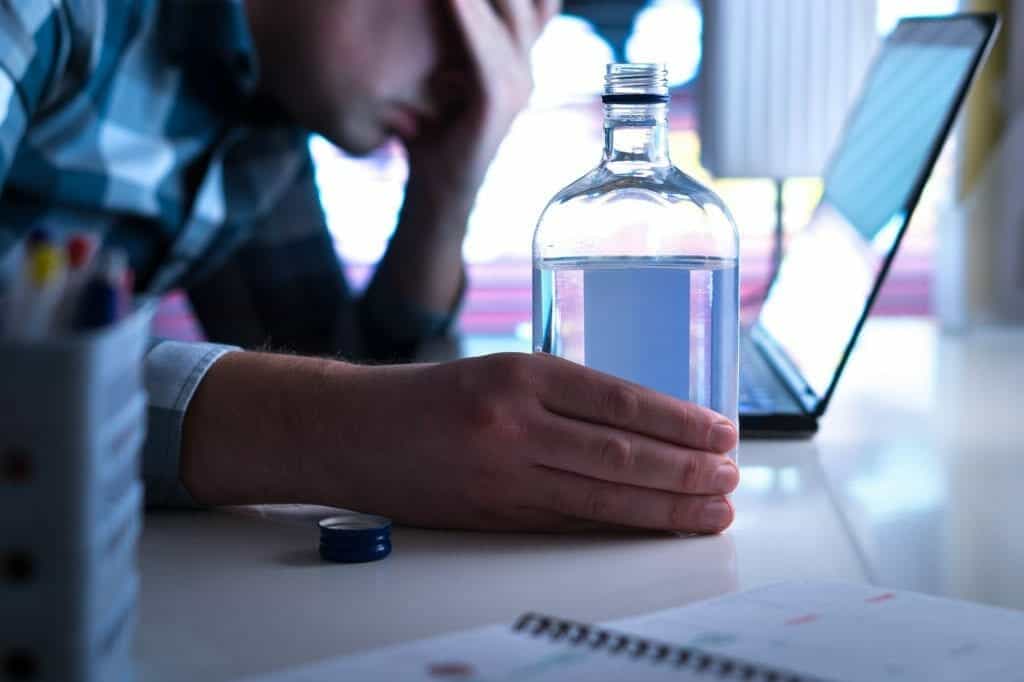Let’s assume that you’re not physically addicted to alcohol and you don’t have any withdrawal symptoms when you don’t drink. Let’s also assume that your drinking is starting to cause some issues in your life. Maybe you’re spending too much money going out with friends. Or maybe you’ve been using alcohol to deal with daily stress and anxiety. But do you really have a problem?
Signs of Problem Drinking
It always helps when you know what to look for. A common problem drinking definition includes these warning signs:
- Regularly drinking alone
- Feeling guilty after drinking
- Feeling angry or violent when drinking
- An inability to stop drinking once you’ve started
- Preferring drinking friends over non-drinking friends
- Drinking to alleviate anxiety or stress
- Financial or employment difficulties brought on by alcohol use
blackouts - Taking risks with your life or the lives of others
Problem Drinker vs. Alcoholic
Despite the fact that there are some serious health risks associated with each classification of drinkers (binge drinker, heavy drinker, problem drinker) none are more serious than those associated with alcoholism.
The best way to determine if you’re addicted to alcohol is to be open and honest with yourself. This is key. You may have had family or friends express their concerns, but your best bet is to look for the warning signs and truthfully assess whether or not they apply to you. Here are a few:
- Drinking more alcohol than you wanted/planned to
- Neglecting your responsibilities at home, work, or school because of your drinking
- Continuing to drink even though it’s causing problems in relationships and your health
- Trying to hide drinking from others and feeling embarrassed about how much you consume
- Building up a tolerance (having to continuously drink more to achieve the same effect)
- Being unable to quit drinking
Another Critical Warning Sign: Withdrawal
Drinking heavily on a regular basis allows your body to get used to the alcohol and when it’s taken away, withdrawal symptoms begin to surface.
These symptoms include anxiety, trembling, sweating, nausea, insomnia, depression, irritability, fatigue, loss of appetite, headache, hallucinations, confusion and even seizures. If you drink to relieve or avoid these symptoms, this is a definite sign of alcoholism.
Detoxing from Alcohol
Alcohol withdrawal (which usually lasts between 5-7 days) can be a life-threatening condition that can cause serious problems. It’s recommended that individuals addicted to alcohol get the help of a qualified treatment center. By engaging the help of professionals, those seeking assistance can gain access to a number of prescription medications that can help minimize the severity of the following side effects associated with detoxing from alcohol.
Alcohol withdrawal symptoms include:
- Headache
- Trembling
- Cravings
- Sweating
- Nausea/vomiting
- Problems sleeping
Some individuals (about 1 in 20 who experience withdrawal) will experience delirium tremens (DTs), a more severe reaction to giving up alcohol. Symptoms include:
- Agitation
- Confusion
- Delirium (seeing/hearing things that aren’t really there)
- Disorientation
- Extreme anxiety
- Convulsions
- Dehydration
Learn more about detoxing from alcohol and other drugs.
Meet Chris
“Cycles of Change recovery services gave me a new lease on life. Before Cycles I was just an empty person who found comfort through addiction. My addiction was the one thing that I felt I could count on and it ultimately became my best friend and worse enemy. Cycles changed all of that. With the help of Joe and the people at cycles of change, not only did I find myself again but I managed to do so while gaining lifelong friends in the process.”
Don’t Wait to Get the Help You Need
If you think you might have a drinking problem, don’t wait to get the help you need. We offer comprehensive addiction rehab services that focuses on your physical and psychological needs before you take your first step toward sobriety. There are a variety of alcohol treatment programs available and our counselors will work with you to help you choose the best program to support your goal of sober living. Facing your addiction alone can be overwhelming. We’re here to help. Fill out our form or call us today at (661) 630-4176.


